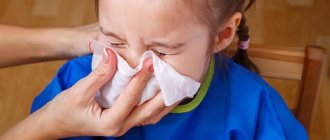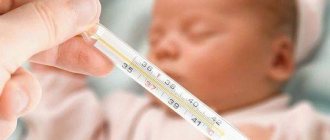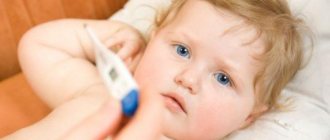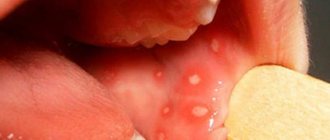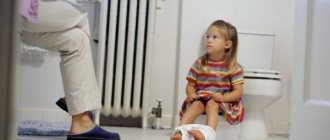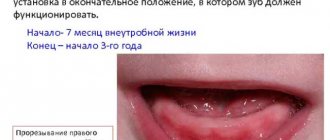Cough is a protective reaction of the immune system to the entry of various allergens and pathogens into the body. It is not always a sign of any disease, especially in early childhood. In order to understand whether cough treatment in newborns and infants is required or whether lifestyle adjustments are simply necessary, you need to understand the likely causes of the condition.
Specialists from the SM-Doctor clinic will tell you what to do if a baby has a dry or wet cough, when to urgently call a doctor, and what home measures you can take to help your child without harming his health.
Causes of cough in children of the first years of life
The most likely culprits of cough in children are ARVI - acute respiratory viral infections (influenza, adenovirus, etc.). They affect the upper or lower respiratory tract, causing mucus production. The body, trying to get rid of mucus, launches a defense mechanism in the form of coughing.
Other likely causes may be allergic reactions, primary bacterial infections, such as whooping cough, tuberculosis, or secondary bacterial complications of ARVI, such as pneumonia, bronchitis, bronchiolitis.
The culprits of dry and wet cough in an infant are sometimes:
- too dry and warm air in the room where the baby is;
- dust;
- strong, overpowering odors, such as laundry detergent or fabric softener, air freshener, perfume, scented candles and oils;
- posterior rhinitis is a disease in which mucus drains down the back wall of the throat, causing a reflex cough, especially when lying down;
- increased salivation;
- regurgitation;
- general or local hypothermia of the body.
In some cases, a persistent cough may indicate pathologies of the cardiovascular system, reflux disease, and foreign matter entering the respiratory tract.
What symptoms should parents be wary of?
Regurgitation may be a sign of a disease, and in this case, you cannot do without the help of a doctor. The child must be shown to a pediatric neurologist if he:
- regurgitates profusely (“gushing”), the intensity of regurgitation is 3 or more points;
- when regurgitating, he becomes capricious and cries;
- after regurgitation, he demands to be fed again, as he remains hungry;
- does not gain enough weight, sleeps poorly;
- has symptoms of respiratory diseases, suffered from pneumonia (especially in the first 6 months of life).
The presence of serious pathologies may be indicated by:
- a sharp decrease in body weight;
- decreased frequency of urination (less than 8-10 times during the day);
- profuse vomiting of the stomach with an admixture of bile;
- lack of stool.
Regurgitation may indicate some problems in the body if they do not stop in a one-year-old baby.
When you urgently need a doctor
In the vast majority of cases, infants encounter viral infections that do not require specific treatment and go away on their own with symptomatic care.
You should be wary and seek advice from a pediatrician if your child has:
- signs of respiratory failure: shortness of breath, rapid, shallow breathing, pale skin;
- the appearance of blood in the sputum;
- clearly visible wheezing when breathing;
- paroxysmal cough, when the baby does not have time to catch his breath between shocks, turns blue, and experiences a lack of air;
- combination of cough with high fever, rash, swollen lymph nodes;
- weakness, lethargy, refusal to eat and drink, lack of response to your name, loud noises and favorite toys.
A condition that experts call false croup or stenosing laryngotracheitis deserves special attention. This is an acute viral respiratory disease that can lead to respiratory arrest in young children. Its main symptoms are:
- barking, croaking cough;
- hoarseness of voice;
- night coughing attacks.
In some cases, this condition develops swelling of the larynx, which is why the child cannot clear his throat fully and begins to choke. At the first signs of false croup, you need to call an ambulance as quickly as possible or take the baby yourself to the emergency room of the nearest hospital.
In what cases does bronchitis in a child require special attention?
If cough and wheezing occur in a child with a serious heart defect or in a premature child under 2 years of age, if life has forced you to “without Google” understand the meaning of the terms “bronchopulmonary dysplasia”, “acute respiratory distress syndrome”, if your child initially has serious lung diseases.
If a child’s intense cough lasts more than 4 weeks, if the child regularly suffers from severe bronchitis, if wheezing in the lungs is a regular companion to his colds, or wheezing occurs regardless of whether the child has ARVI or not, if ordinary colds regularly require justified antibacterial therapy - in all these cases, bronchitis can pose a serious danger and requires increased attention and, most likely, consultation with a pulmonologist.
Diagnostics
At the appointment, the pediatrician carefully examines the baby, conducts initial diagnostics and, if necessary, prescribes laboratory or instrumental tests.
In order to determine the possible cause of the cough and assess the current condition of the baby, the following is carried out:
- auscultation (listening) of the lungs;
- laboratory blood tests with a detailed leukocyte formula;
- various allergy tests if indicated;
- chest x-ray;
- ultrasound examination of the heart.
Next, the specialist, assessing the results of tests and examinations, establishes an accurate diagnosis and prescribes appropriate therapy.
Sources
The following materials were used to create this article:
- G. A. Samsygina. Cough in children. Clinical manual - 2nd ed., revised. and additional - Moscow: GEOTAR-Media, 2022. - 192 p.: ill. — (Series “Library of a Medical Specialist”).
- Glukhov S.A. Artificial cough // Great Medical Encyclopedia: in 30 volumes / ch. ed. B.V. Petrovsky. — 3rd ed. - M.: Soviet Encyclopedia, 1979. - T. 10: Kabakov - Coalescence. — 528 p.: ill.
- I. G. Bereznyakov. Mechanisms of cough // News of medicine and pharmacy, December 2005, No. 20-22 (180-182).
- Nikitin V. A., Marks S. I., Tolstykh E. M., Vasilyeva L. V. Clinical variants of the cough reflex and their correction / Voronezh State Medical University named after N. N. Burdenko. // M.: Russian Respiratory Society (RRO), 2016. Scientific and practical journal “Pulmonology”, No. 26 (2).
Treatment of cough in newborns and infants
For young children, adequate therapy should be carried out, based on objective information obtained during the examination and collection of anamnestic data. Treatment of cough in infants should only be carried out by qualified pediatric specialists: pediatricians, infectious disease specialists, allergists.
Depending on the indications, the treatment package may include:
- antipyretics;
- antibacterial drugs for confirmed bacterial infection;
- medications that thin sputum;
- antitussives that block reflex cough;
- antihistamines and hormonal drugs.
A competent doctor will also give parents individual recommendations on establishing an optimal microclimate in the child’s room, proper nutrition, and daily routine. The correct regimen for a baby is the basis for a quick recovery from any disease.
How to help infants at home with a cough
The most important rule is never to give children any medications without consulting a doctor and not to practice traditional medicine techniques, even if they were recommended by a beloved grandmother, an experienced neighbor, or a mother of five children from an online forum.
The main task of parents in the treatment of dry or wet cough is general support of the body. What does that require?
- Keep the room where the baby is at no more than 22 degrees Celsius with a humidity of at least 40%. The drier the air, the more time and effort the body needs to moisturize it. Inhaling cool, humidified air facilitates the functioning of the respiratory system, helping them quickly cope with mucus and remove it out.
- Give the baby plenty of water. The optimal drink for newborns and infants is mother's milk, but with artificial feeding or pathological fluid loss, clean water can and should be given. Liquid is necessary to maintain the rheology (fluidity) of sputum: the thinner the mucus, the easier it is for the child to cough it up.
- Periodically change the baby's position in the crib and keep him in an upright position more often. Such measures contribute to accelerated mucus discharge and improved nasal breathing.
- Walk. Walking in the fresh air is an excellent cure for coughing children. The main thing is that the baby feels satisfactory, does not have a fever and does not suffer from diseases that require strict bed rest. Cool, fresh air, entering the child’s respiratory tract on the street, condenses and moisturizes the mucus, thereby accelerating the process of mucus discharge and overall recovery. Walking is especially useful for children with whooping cough, laryngotracheitis, bronchitis and other viral or bacterial infections of the respiratory system (important: in consultation with a doctor!).
- Do not force him to eat if the baby categorically refuses. During any illness, all the body’s forces are aimed at fighting the “invader,” and digestion takes time and reduces the intensity of the immune system’s attacks on the infection.
What you should definitely not do:
- give infants both antitussives and expectorants/mucolytics without a doctor’s prescription;
- experiment with methods of folk practices, even proven by the experience of the older generation;
- leave the street if the child develops a wet cough after a dry cough (this means that the air has fulfilled its task - it has moistened the sputum, and now it is easier for the baby to cough);
- wrap up, overheat the baby.
What to do if your baby is coughing from colds and flu
One of the drugs that can be used to treat very young children, including newborns and premature babies with a gestational age of less than 34 weeks, is the antiviral drug VIFERON.
The drug VIFERON has a wide spectrum of antiviral activity. Alpha-2b interferon, which is part of the drug, was created on the basis of modern technologies. Antiviral properties allow it to block the reproduction of the virus, and the immunomodulatory effect helps restore immunity. The drug was developed as a result of fundamental research in the field of immunology, which proved that in the presence of antioxidants (vitamins C, E and others), the antiviral effect of interferon is enhanced.
For the treatment of children under one year old, the drug VIFERON is used in the form of suppositories and gel. The ointment is used to treat children over 1 year of age.
Children under 7 years old, incl. newborns and premature infants with a gestational age of more than 34 weeks are prescribed VIFERON Suppositories (suppositories) 150,000 IU, 1 suppository 2 times a day after 12 hours every day for 5 days. According to clinical indications, therapy can be continued. The break between courses is 5 days.
Premature newborns with a gestational age of less than 34 weeks are recommended to use the drug VIFERON 150,000 IU, 1 suppository 3 times a day after 8 hours every day for 5 days.
The article “Acute respiratory infections in children: optimization of treatment tactics” describes the results of a study of the use of the drug VIFERON in the treatment of ARVI and influenza.1 In the group consisting of children of different ages who received the drug, positive dynamics were observed: body temperature tended to normal, symptoms decreased intoxication, the intensity decreased until the cessation of catarrhal symptoms (cough, runny nose) and respiratory syndrome (difficulty breathing) on average two days earlier than in the control group. For children undergoing treatment in a hospital, nosocomial infection becomes a frequent problem and threat to delay treatment and complications of the underlying disease. It is important that among children who received VIFERON, infection occurred half as often.
Depending on the pediatrician’s recommendations, for the treatment of ARVI, it is necessary to apply a strip of VIFERON Gel approximately 0.5 cm long to the nasal mucosa 3-5 times a day for 5 days. Before this, it is better to rinse the mucous membrane with saline solution. In order to protect a child from ARVI, it is necessary to apply a strip of gel approximately 0.5 cm long to the nasal mucosa 2 times a day as a preventive measure. Course duration is 2-4 weeks.
Reference and information material
Author of the article
Gerasimenko Igor Olegovich
General doctor
Sources:
- Nikolaeva S.V., Khlypovka Yu.N., Gorelov A.V. Acute respiratory infections in children: optimization of treatment tactics. //RMJ 2019; 1(*): pp.1-5.
i https://cyberleninka.ru/
ii https://www.rmj.ru/
Loading...
Take other surveys
Prevention
It will not be possible to protect a child from all diseases, but it is possible to reduce the risk of developing serious pathologies and prepare the body to face infections. To do this you need:
- carry out preventive vaccination of babies from birth against diseases such as tuberculosis, whooping cough, diphtheria;
- devote time to hardening the kids;
- walk a lot with your child in the fresh air;
- regularly ventilate and humidify the room with the newborn;
- Don’t be overzealous when dressing your baby for a walk;
- ensure adequate physical development through massage, gymnastics, swimming, etc.
- promptly contact specialists for the treatment of any diseases.
You can learn more about the types of children’s cough, measures of assistance and treatment options at a personal meeting with the doctors of the SM-Doctor clinic. Sign up for a consultation by phone or on the website, ask questions using the online form to get the information you are interested in.
Forecast
With timely seeking help and competent therapy, the prognosis is favorable. In the case of a prolonged course of children's non-temperature cough (more than 3 weeks), complications may develop or chronicity of pathological processes in the upper respiratory tract. In children, a prolonged cough is more severe than in adults, since the child’s mucous membrane is less adapted to irritants. Lack of treatment can lead to the development of dangerous conditions such as bronchial asthma, bronchitis and pneumonia.
Question answer
Mom insists on using mustard plasters, but the baby is only 2 months old. Can he be given mustard plasters or cough jars?
In no case. They are contraindicated for children, since such measures can lead to burns and mechanical injuries to the skin, and unpredictable allergic reactions.
We are vaccinated with DPT, but the child still coughs, like whooping cough. What to do?
Yes, preventive vaccination does not guarantee that the disease is excluded, but it reduces the risk of serious complications many times, hundreds of times. There are special treatment protocols for whooping cough, so you should first contact your attending pediatrician for laboratory tests. It is quite possible that the suspicions will be in vain.

